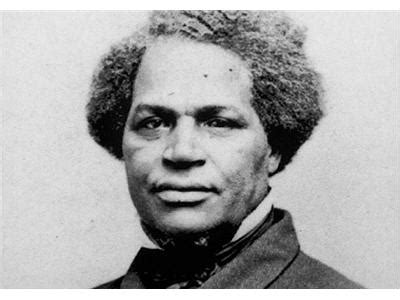David Walker, a prominent abolitionist during the antebellum era, played a pivotal role in galvanizing African Americans to resist enslavement and demand their rightful place in society. His fiery writings and speeches inspired a generation of activists and laid the foundation for the abolitionist movement.

Early Life and Influences
Born in 1785 as a free man in Wilmington, North Carolina, Walker grew up witnessing the horrors of slavery. His mother, a former slave, instilled in him a deep sense of empathy and a thirst for justice. Walker’s education and travels, particularly to the Caribbean, exposed him to the abolitionist ideas of the Haitian Revolution and the efforts of other abolitionists.
The Walker’s Appeal
In 1829, Walker published his most influential work, “Walker’s Appeal to the Coloured Citizens of the World.” This pamphlet denounced slavery as a crime against humanity and called for African Americans to rise up and demand their freedom. Walker’s words resonated with thousands of enslaved and free Black people, who saw in him a voice that spoke for their own suppressed aspirations.
Key Arguments and Impact
Walker’s Appeal presented several powerful arguments against slavery:
- Slavery violated the principles of natural law and Christianity.
- It degraded and brutalized both enslaved people and their oppressors.
- African Americans had the right to liberty, equality, and self-determination.
Walker’s writings had a profound impact on the abolitionist movement. They inspired William Lloyd Garrison to found the New England Anti-Slavery Society and contributed to the growing antislavery sentiment in the North. Walker’s Appeal also fueled the creation of African American newspapers and political organizations.
Resistance to Enslavement
Beyond his writings, Walker actively supported resistance to enslavement. He promoted the use of violence in self-defense and encouraged enslaved people to escape to free states or other countries. Walker’s advocacy for armed rebellion alarmed white Southerners, who saw him as a dangerous threat to their social and economic order.
Legacy and Significance
David Walker’s legacy as an abolitionist remains profound. His writings sparked a rebellion among African Americans and helped to galvanize the abolitionist movement. Walker’s Appeal is considered a seminal work that contributed to the eventual end of slavery in the United States.
Notable Figures and David Walker
- Frederick Douglass: “David Walker was the first man who boldly announced to the world that the slaves would never submit to their condition.”
- W.E.B. Du Bois: “David Walker was one of the great men of our race, a man of exceptional courage and determination.”
- John Quincy Adams: “[Walker’s writings] have produced more effect on the public mind than any other writer of his time.”
Tables
Table 1: Key Points of Walker’s Appeal
| Point | Description |
|---|---|
| Slavery is a crime against humanity | Walker argued that slavery violated the principles of natural law and Christianity. |
| Slavery degrades both enslaved people and their oppressors | Walker believed that slavery corrupted both the enslaved and their owners. |
| African Americans have the right to liberty, equality, and self-determination | Walker asserted that African Americans were entitled to the same rights as white people. |
Table 2: Impact of Walker’s Appeal
| Effect | Description |
|---|---|
| Inspired the establishment of the New England Anti-Slavery Society | Garrison was motivated by Walker’s writings to found the abolitionist organization. |
| Contributed to the growing antislavery sentiment in the North | Walker’s Appeal helped to sway public opinion against slavery. |
| Fueled the creation of African American newspapers and political organizations | Walker’s writings encouraged African Americans to organize and advocate for their rights. |
Table 3: Resistance to Enslavement
| Action | Description |
|---|---|
| Promoted the use of violence in self-defense | Walker advocated for enslaved people to fight back against their oppressors. |
| Encouraged enslaved people to escape to free states or other countries | Walker provided practical advice on how to escape slavery. |
Table 4: FAQs About David Walker
| Question | Answer |
|---|---|
| When was David Walker born? | 1785 |
| Where was David Walker born? | Wilmington, North Carolina |
| What was the name of David Walker’s most influential work? | “Walker’s Appeal to the Coloured Citizens of the World” |
| What did David Walker advocate for? | The end of slavery and the equality of African Americans. |












